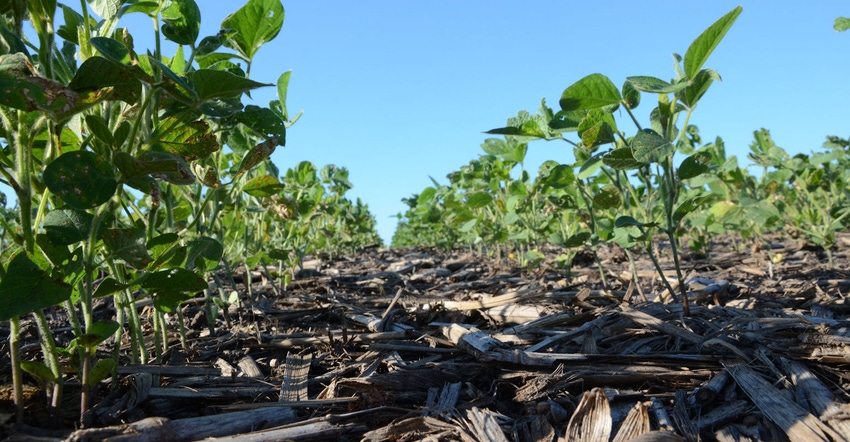March 16, 2017

The biologicals market is booming, but there's more going on in the crop product world on the score of boosting plant performance than simply biologicals. Plant Impact, a global company, with offices in North Carolina, is bringing a new product to the U.S. market that is a little harder to classify than elsewhere in the world.
"We use different terminology versus what we can register the product with in the U.S.," says Keith Vodrazka, strategic marketing manager, North America. "[This new product] is known as a biostimulant and there is a coalition working to get regulations to the states on this."
As it stands Fortalis is being registered state by state as a fertilizer with plant amending properties. The process to bring the product to the U.S. market is taking time, he said. "We need to get 50 registrations for this product to work in all the states," he said.
Longer term, Plant Impact and other companies that make products that aren't specifically biologicals, would like a more consistent, federal process. For now, however, Fortalis is moving into the North American market using the system that exists. So what is Fortalis?
A new kind of yield builder
Fortalis is a chemical, it is not a biological, product. That's a message that Plant Impact wants everyone to get. This is made from a combination of what Plant Impact says are "thoroughly researched, tested and regulated chemicals."
Added Vodrazka: "We want to bring credibility to this space. Our focus is on the science of how this works."
Fortalis is based on a synthetic molecule - which the company calls CaT technology. Essentially, the tech optimizes the mobility and distribution of calcium in plant tissue. Vodrazka was clear that Fortalis doesn't boost calcium production, but instead helps the plant use what's there more efficiently. The CaT product includes foliar calcium and zinc as part of the formulation. Calcium is part of the soybean plant's natural stress signaling process.
In essence, Fortalis helps insulate the plant from external stresses, which anyone who knows soybeans understands can be an issue for both blossom and pod retention. With this product, the aim is to help the plant retain more pods, which adds to yield.
Of course, a new company with a new product is going to make that claim. But Vodrazka is clear that sharing all the information about the product is critical to transparency about what works. Across more than 200 trials from 2015 to 2016 in the United States, Fortalis boosted soybean yields an average of 4.8 bushels per acre when used with a fungicide. In addition, 86% of those trials showed a positive response. He noted that 86% odds of success would be good in most instances. And in its literature showing field trials, transparency is evident; the company shows that 14% number with no yield boost, or yield losses.
Fortalis may be new to North America, but its CaT technology has been at work in Brazil a little longer. And in 1,500 trials, the product also showed that positive crop response.
The product, as a chemical, also plays well with others. It's easy to mix and convenient for application and needs no special handling beyond what you might do for a fungicide or herbicide. Timing of application for Fortalis is with the foliar fungicide application at R1 to R3.
Setting standards for credibility
When you're new to the market you want to get off on the right foot with customers. Plant Impact is pushing one way it will get that done. The company has launched what it calls a crop enhancement industry first - 15 quality pledges.
In a market where claims and counter claims are going back and forth regarding crop stimulation and its benefits - these types of products have been on the market in Europe and South America for some time - this 15-point program aims to help Plant Impact raise the bar on the industry, Vodrazka said.
The Plant Impact Quality Standard sets down a range of issues from proven crop yield improvements documented by independent trials to formulation consistency that ensures stability for use. The points also include safety and compliance requirements. It's a new way to look at this kind of product. You can check out the entire list at plantimpact.com/about-us/pi-quality-standard-new
For more information about Fortalis, a new crop enhancement product for soybeans, visit fortalisyields.com.
About the Author(s)
You May Also Like






